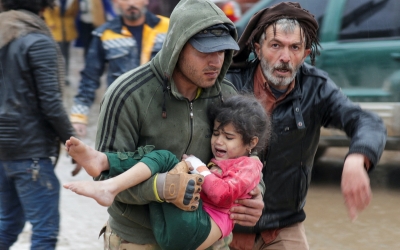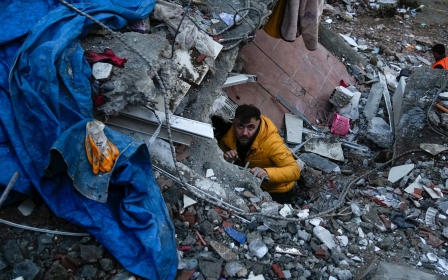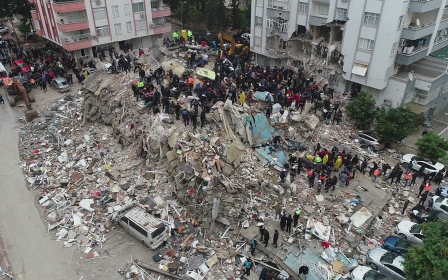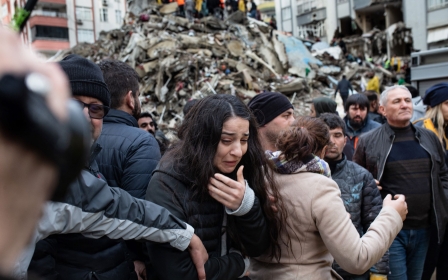Turkey earthquake: Survivors trapped under rubble face hypothermia threat
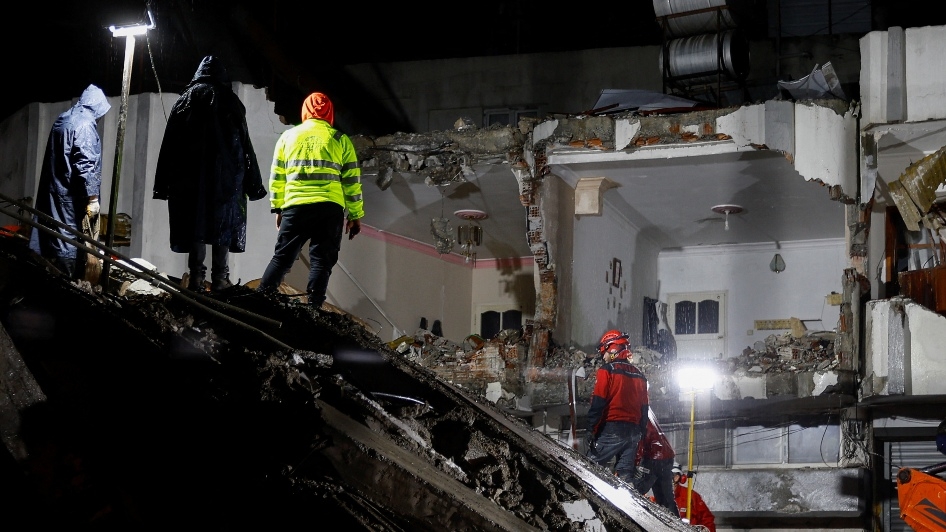
The Turkish government has dispatched thousands of search and rescue workers to southern Turkey, which was hit by two earthquakes, but they are facing a formidable enemy: hypothermia.
Earthquake-hit cities like Malatya, Kahramanmaras, Gaziantep, and Diyarbakır face cold, rain and even some snow, as temperatures dip near zero.
Meteorology engineer and disaster management specialist Mikdat Kadıoglu told Turkish media that the rescue workers will need to rush, as people under the rubble may not survive the general "golden" rule during severe weather, a 72-hour rescue window. “They might only have 24 hours,” he said.
The first earthquake with a magnitude of 7.8 brought down entire apartment blocks in Turkish cities and piled more devastation on millions of Syrians displaced by years of war.
The worst quake to strike Turkey this century, it came before sunrise amid harsh winter weather and was followed in the early afternoon by another large 7.7 magnitude earthquake.
It was the biggest quake recorded worldwide by the US Geological Survey since one in the remote South Atlantic in August 2021.
The earthquake hit 10 cities across southern Turkey and pushed the limits of Ankara’s emergency response. Many people in Hatay and Kahramanmaras complained that they lack emergency rescue teams to dig through the rubble.
Hatay mayor Lutfu Savas said there were thousands of people under the collapsed buildings and they haven't seen much aid yet. Hatay is in a particularly grim state, as its airport was damaged and some roads leading to the city are blocked due to collapsed bridges.
Relief organisations like IHH, Akut, and the Turkish Red Crescent as well as response teams from Turkish municipalities from other parts of the country are on their way to the region. The Turkish military also deployed troops to help operations.
Turkish disaster management agency, Afad, said the death toll in Turkey reached 2316 and the number of wounded was 13,293 by the time of writing.
It is already the highest death toll from an earthquake in Turkey since 1999, when a tremor of similar magnitude devastated the heavily populated eastern Marmara Sea region near Istanbul, killing more than 17,000.
Bulent Ozmen, an academic specialising in disaster management, told Middle East Eye that it was almost impossible for professionally trained teams to be in 10 cities, scouring thousands of buildings. The Turkish government said at least 5,000 buildings have collapsed.
“Unfortunately you would need volunteers and regular citizens to do the job because professionals cannot be in 10 cities,” he said. “It is really difficult. Everyone is racing against time.”
Ozmen says that temperatures will drop further at night and that digging becomes more challenging due to the darkness.
Kadioglu said people could be victims of hypothermia even if the temperatures stay above zero.
Dr Servar Yılmaz, the chairman of Hatay Doctors Chamber, said there was snow and rain in the city and serious cold. “We have to be fast to reach the victims,” he said. “They may just die out of cold weather rather than the actual injuries they have.”
Many countries are dispatching search and rescue teams as well as emergency response staff to Turkey, including the US, EU, Azerbaijan, Lebanon, Greece, and Israel.
Afad said it deployed nearly 10,000 professional aid workers and nearly 10,000 volunteers to the disaster areas.
Middle East Eye delivers independent and unrivalled coverage and analysis of the Middle East, North Africa and beyond. To learn more about republishing this content and the associated fees, please fill out this form. More about MEE can be found here.


